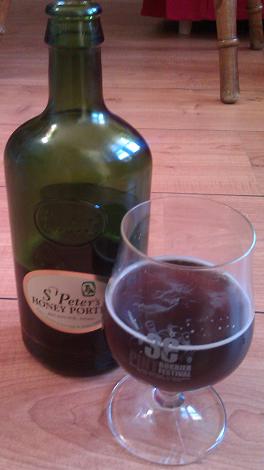Earlier this week the Hugo Award nominations were announced and the category I’m primarily interested in, Best Novel, is okay but not great:
Blackout/All Clear by Connie Willis (Ballantine Spectra)
Cryoburn by Lois McMaster Bujold (Baen)
The Dervish House by Ian McDonald (Gollancz; Pyr)
Feed by Mira Grant (Orbit)
The Hundred Thousand Kingdoms by N.K. Jemisin (Orbit)
Interestingly enough four out of the five nominees are women, something that hasn’t happened too often. So far I’ve only read The Hundred Thousand Kingdoms, but have both Cryoburn and The Dervish House on the to-read pile. Was I forced to vote, I’d go for the Jemisin (one of the best books I read last year and a very strong first novel, followed by the McDonald and the Bujold — but knowing how much the Hugo voters like Willis, she seems a safe bet to win this category.
It being Hugo Award time again, of course it’s also time for the semi-annual Hugo Award bitchfest, as online fandom once again berate the voters for being out of touch and exclusive. This time there has been a small storm brewing over the fan categories:
But don’t even get me started on the Best Fanzine and Best Fan Writer awards. Maybe I’m exposing my ignorance here, but beyond StarShipSofa, I haven’t heard of a damn one, nor am I familiar with any of the writers. My beef, obviously, is the lack of presence of blogs, bloggers and online writers. Where’re the Nialls (Harrison and Alexander)? Where’s Abigail Nussbaum or Adam Whitehead? No nod for SF Signal? Really?
James Nicoll, nominated for the second year in a row for best fanwriter (congrats!) was quick to put Aidan Moher right: “Apparently the net is large enough for us not to have run into each other in the 25 years I’ve been online + however long you’ve been online“… Most of the nominees Aidan complained about were online and had been online for years, if they hadn’t always been online — that he didn’t know them was an indication of how big online fandom has become.
Setting that aside, there remains the more general complaint about the out of touchness of the Hugo voters, as echoed in comments by Jonathan M: Hugo voters tend to be older and not too involved in online fandom and generally are conservative in their choices, much of which I agree with.
The problem with the Hugo Awards is that they were established in a time when science fiction and fantasy were much smaller and the fan commmunities build around them even smaller, a time when it was probably possible to know every active fan in the world. They got their prominence when it was still possible to read every word of science fiction published in English in a given year and when it was true that the Hugo voters were the sf and fantasy community.
This hasn’t been true for decades now, but the Hugos, as the oldest still existing awards in the genre, retain their standing even when the community that votes on them has become less and less representative of fandom as a whole, if you can still even speak of fandom this way. You can be an active, happy and well connected fan and never ever know about worldcons, Hugos, fanzines and old skool fandom at all, just like many Hugo voters happily putter around the same small world of their fandom.
All of which doesn’t really matter if not for the fact that the Hugos are the most important award in science fiction and fantasy still — if they’re out of touch and conservative, they’re worthless. I’m not certain this point has been reached already and certainly in the fan categories there has been somewhat of a renaissance the last few years — James Nicoll may be know in traditional fandom, but his fanac is as untraditional as you can get. Being ignorant of the nominees does not necessarily mean the awards are at fault; as said fandom is big enough that this will quite often be the case.
If people do want to reform the Hugos they need to put money where their mouth is and buy a supporting membership of this year’s Worldcon to get involved. At fifty dollars (about .5 euros in real money) this is a significant barrier to entry in these economic depressed times, I agree, but it’s the only way to change them as the organisation behind the awards, the World Science Fiction Society can only change the awards if their members want it. Online kvetching won’t change that.
